- Home
- Johnny D. Boggs
The Raven's Honor Page 4
The Raven's Honor Read online
Page 4
“But …” began Epperson.
Houston’s raised hand silenced Epp. David Culberson had the floor.
Culberson filled his huge lungs with air, and, exhaling slowly, shook his head. “Our neighbors have joined the Confederacy. Texas would be cut off from the rest of the Union. And, I think, despite Mister Lincoln’s boasts of assistance, we are too far from the North to expect help.” He raised his finger. “And as such, likewise we are too far away to see much blood shed on our native soil.” He turned to refill his glass. “But …” he paused to sip, before turning back to the men, “were we to accept the president’s proposition, fire and sword would destroy our state, ourselves. Much horror would we witness. I respect Mister Epperson and his opinion, but I cannot, in good conscience, agree. The people of Texas have spoken, and quite loudly. I must stand with her, and with my neighbors.”
“The people of Texas always speak loudly,” Dr. James Throckmorton said without waiting to be called upon. “We wouldn’t be Texans if we didn’t.”
Usually, such a statement would bring about a few chuckles, but no one laughed this night.
“I don’t know if the United States can survive Civil War,” Throckmorton continued. “But I know Texas cannot.” His head shook sadly. “I treated enough wounded men in the Mexican War. I’ve seen enough men die in battle. I have to side with young Mister Culberson, Governor. Besides, you saw the numbers … how many Texans voted for Secession. We can’t put together an army of a hundred thousand. I’m not sure we could put together an army of a thousand.”
“Thanks, Doc.” Houston walked to the fireplace, where George Washington Paschal continued jabbing the poker against the burning logs.
Paschal was maybe twenty years younger than Houston, but they had lived similar lives—Southern born (Paschal in Georgia; Houston in Virginia), teaching school, lawyering, and living with the Cherokees. Like Houston, Paschal had married a Cherokee woman, and like Houston, Paschal and Sarah had divorced. Sarah Paschal had followed the white man’s law about divorce. Sam Houston and Tiana, however, had divorced the Indian way.
The stately-looking gentleman, with dark hair thinning on top but a full white beard covering his angular face, did not turn around, just stoked the fire as he said, “You can’t do it, Sam.” He removed the poker from the fireplace and set it in the stand. “You just can’t do it.” Then he turned, folded his arms across his chest, and looked at the others.
Eventually, all eyes fell on Sam Houston.
“I remember,” he said, “back in January when I was doing my speechifying from the balcony of the new Shady Villa Hotel in Salado. Naturally, I’m preaching about the travesty of secession and the carnage such an act might bring to Texas. It was not what I would consider a popular sentiment in Salado. And one old boy, he cups his hands and hollers … ‘General Sam, we can whip them Yankees with cornstalks!’ And I say to him … ‘That may be true, but they have not agreed to fight with cornstalks.’”
The chuckles, he remembered, had spread like fire on that chilly day in Salado. In the library this night, he found only polite smiles.
Houston raised the letter to read again, but stopped. His head shook and he murmured once more, “Too late.” He drew in a breath, and began crossing the room toward the paintings of Crockett and Jackson and the fireplace. Paschal stepped aside and found the Scotch.
“Gentlemen,” Houston said, “I had resolved to act in this matter on your advice.” With a sigh and a final glance, he tossed the letter into the flames. Watching it burn, he said, almost bitterly, “But were I ten years younger, I would not.”
* * * * *
In the quiet house, Houston knew sleep would not come for him. He found the crate of books in the library, and fished out Virgil’s The Aeneid. After settling into one of the chairs by the fireplace, he opened the book, and turned immediately to the passage, and read:
The gates of hell are open night and day;
Smooth the descent, and easy is the way:
But to return, and view the cheerful skies,
In this the task and mighty labor lies.
Exhaustion at last overtook him, but he doubted if he could make it upstairs and crawl into bed. Besides, as wound up as he felt, he would toss underneath the covers, disturbing Margaret’s sleep. He thought about the letter he had just burned, and the advice he had heard. Glancing at the portrait of Andrew Jackson, and Chapman’s painting of Crockett, he remembered those old fools at the barbershop. Should he have accepted Lincoln’s offer? He tried to envision Major General Sam Houston leading men into battle. Would his men love him, or think him a coward as many had … before, and even after, San Jacinto.
Being an old man in these times was a hell of a thing.
He sighed. He cursed. He considered. He slept.
Chapter Five
Crockett
“Sam, Sam, Sam …”
The whisper startles Houston, who lifts his head to find a man in buckskin britches, moccasins, and a tailored green coat over a calico shirt turning away from the portrait of Crockett.
Houston blinks. Blood drains from his face. He gasps in terror.
It is Crockett.
The smiling figure hooks a thumb back at the painting. “When that ol’ spiller of paint stuck his dandified dog in the corner yonder, I give up all hope of him makin’ a picture that was worth lookin’ at. I don’t think it really captures me, but you must like it.” The accent is as pure as Tennessee sour mash.
Houston cannot speak. He wants to run out of the Green Room but cannot rise from his chair.
Crockett turns back to the painting, shakes his head, and says, “All ’em artists got stuck on this one notion. You put a fellow in buckskins and that’s all you need to do to make Davy Crockett a dashin’ figure. Ask me, Chapman made me look like a circuit-ridin’ sky pilot.” Laughing, he moves to the ardent spirits, finds the jug, and splashes corn liquor into a glass. “If Chapman had any sense at all, he would have had me aimin’ Ol’ Betsy and shootin’ that stupid, uppity pup of his.”
Facing Houston again, Crockett steps toward the fireplace, and raises his glass at the other portrait.
“Now, this fellow here. He knowed what he was paintin’. This one, well, I look at Jackson and I say to myself, I say … ‘Now this son of a bitch here … he was somethin’. Somebody. He was a man.’ Even when I hated his hard-rock heart, I admired the cocksure bastard. Here’s to you, Andy, you ol’ bastard.”
He drinks, spies Houston, and laughs. “Oh, now I done hurt your feelin’s, Sam. I spoke ill of Ol’ Hickory, forgettin’ how you was always lickin’ his boots. Don’t mind me none, ol’ hoss. I’m just David Crockett, speakin’ his mind.” Crockett settles into the other chair facing the fireplace.
“Never figured I’d see the day when a cat got Sam Houston’s tongue.” Crockett drinks more of the clear, biting fluid without flinching.
Houston thinks, I must be dead!
Crockett shakes his head. “I know why you’d put up a likeness of Andy. You worshiped Ol’ Hickory like Foster McIntosh loved ’em peach pies Missus Cassady baked ever September in Lawrenceburg. But why a paintin’ of me? Guilt?”
Houston drops the book onto the table. No, I am not dead. I’m dreaming. I must be dreaming. A nightmare. He squeezes his eyelids shut, hoping to wake to nothing but darkness, but, instead, Crockett’s intense blue eyes bore through him.
A dream, Houston tells himself again. Do not scare yourself witless. Soon enough, you will wake up. Soon cannot come soon enough.
“Guilt?” Houston finally manages.
“Well …” Crockett sets the empty glass atop The Aeneid. “You did leave Bowie and me and all ’em others there to get chopped to pieces by lances, cannonballs, and Mexican lead.” His head shakes. “’Tweren’t pretty, ol’ hoss.”
That bit of nonsense has followed Houston far too long.
Now Houston’s eyes flash and he leans forward, balling his fists. “I told … I ordered Bowie to blow up that mission. I told him it would be impossible to hold such a station with volunteers.”
Crockett’s laugh stops him. “And I bet Jim’s final thought, if he had one, coughin’ his lungs out as he was doin’, was that he sure wished he had listened to Gen’ral Sam. Come to think on it, I was wishin’ the same thing when ’em Mexicans boarded our vessel like Blackbeard’s pirates.”
Houston shakes his head. “You would tell a lie if the truth suited you better.”
Rough hands clapping together like a thunderbolt, Crockett rocks back, laughing mightily. “I am a professional liar, hoss.” Straightening, the smile vanishes, and his voice drops to a whisper. “But I ain’t lyin’ now. Be glad Jim didn’t blow up that station, as you call it. Be glad you dragged your feet tryin’ to … ahem … rescue us avowed patriots. Be even gladder that you wasn’t there with us.”
Now Houston rises. “We were at Washington-on-the-Brazos, when a courier told us that Santa Anna had you trapped. And what did Robert Potter do? That idiot made a motion that the entire convention should march to San Antonio de Béxar.”
Crockett’s head shakes. “Now, hoss, might you have a wee bit of bias against ol’ Potter? Since he didn’t want you to get that job of major general of our new Texan army.”
“What army? What I had did not even pass for raw recruits. Madness. Pure folly. Marching to Béxar would have destroyed everything we were working for.”
Crockett grins again. “So, you let ’em Mexicans destroy us. And so you done what Sam Houston would always do, followin’ the ol’ advice I always give you and anybody else who’d even pretend to listen … be always sure you’re right, then go ahead.”
“I was right. Had I met Santa Anna at that time, the revolution would have ended. I had to plan. I made the right one.”
“And we made the sacrifice. All hundred and eighty of us, includin’ your friends.” He’s staring up at Houston, still smiling.
“I did what I had to do,” Houston whispers, “for the future of Texas.”
Crockett’s next words caused Houston to sit down and sigh.
“And you done what Sam Houston done better’n anybody I ever knowed. You got drunk.”
Such truth he cannot deny. Even in a nightmare. Certainly not to a ghost. Houston remembers that march. Five days after leaving Washington-on-the-Brazos, word reached Houston and his men that the Alamo had fallen, that Crockett, Travis, Bowie, Bonham … all those brave lads … had perished by the sword of Santa Anna.
From the corner of his eye Houston watches Crockett pick up the glass and head back for the liquor. When Crockett returns, he holds two glasses, one of which he extends toward Houston.
Though desperately needing whiskey, Houston shakes his head.
“That wife of yourn sure took the starch out of you, Sam.” Crockett does not lower his offering.
“What would you know about it?” Houston says angrily. “You left yours in Tennessee.”
Crockett sips from his own glass. “I would’ve come back to my honey-pie, hoss. ’Tweren’t no permanent departure, you understand. But I seem to recall you leavin’ one in Tennessee, too. And another in Indian Territory. C’mon, Sam. This is David Crockett talkin’ to you. I’ve seen you throw up in people’s front yards.”
He cannot stop his hand from accepting the glass, and he lifts it with a shaking hand. He sniffs, then sends a curious look at Crockett.
“Ice water,” Crockett says, and polishes off his liquor. “Sans the ice. Reckon it melted.”
Houston drinks the water in two gulps, stifles a cough, and shakes his head. “I have made mistakes. Many that I would gladly cut off my arm to go back in time and do what’s right.”
“Not that arm, Sam.”
Crockett nods, and Houston sees the ring on his pinky, the one his mother had given him so many lifetimes ago. His head raises and he studies Crockett.
“Am I right now, David?”
Crockett shrugs. “Who can say? Will anybody recollect and write about what we done at the Alamo? Maybe. Maybe not.”
Houston recalls passing the old mission on his last trip to San Antonio. The sight numbed him: crumbling ruins, home to rats, wild pigs, trash, and decrepit old wagons and boxes.
“Will anybody remember what Sam Houston done?” Crockett continues. “What all he lost …? Was it worth it, hoss, to you?”
Houston draws in a breath, exhales, and says “‘I would rather be politically dead than hypocritically immortalized.’”
“Sound words. Yourn?”
“David Crockett’s.”
“That’s a good one. I wonder if I really said that. Here’s another, hoss … ‘Fame is like a shaved pig with a greased tail, and it is only after it has slipped through the hands of some thousands, that some fellow, by mere chance, holds onto it!’ You’ll hold on to it, my friend.”
A silence fills the room, and Houston shivers from the cold. The fire is burning out, and he wants to rise, put another log on the fire, but again he cannot move. Fearing that he is dying, he looks at the specter in front of him, swallows down his fear, and asks, “Is it hard, David? Dying?”
Crockett gathers the glasses and returns to the liquor. “I wouldn’t know, Sam.” Liquid splashes into one of the glasses, and Crockett steps back. “But this I do know, hoss. Us gettin’ killed, and Fannin’s boys gettin’ shot down like dogs at Goliad, well, we helped you latch onto that greased pig. Because us dyin’, well, that give your boys somethin’ worth fightin’ for. Otherwise, you wouldn’t have been able to whip Antonio López de Santa Anna along Buffalo Bayou.” He sips, shakes his head, and laughs. “ ’Course, you was a mite lucky, too, catchin’ Santa Anna with his pants down and his pecker preoccupied.”
Still drinking the corn liquor, Crockett stares up at the portrait painted by John Gadsby Chapman. “I don’t know. Maybe it does look like me. At least I ain’t wearin’ one of them god-awful skunky-smellin’ caps. ‘Be always sure you are right, then go ahead.’ You might’ve said that first, Sam. I might have stole it from you. Wouldn’t surprise me none.”
Houston feels the pressure lifted off his chest and shoulders, and he relaxes in the presence of this ghost, this dream, this … Crockett. “What surprises me, David,” he says, “is that you somehow did not talk your way out of the Alamo.”
Crockett turns only his head, and that beam in his eye causes Houston to relax even more. “Sort of surprises me, too,” he says.
A silence fills the library, and Houston shivers. He wets his dry lips, draws a deep breath, and, after exhaling, says, “In all these nigh thirty years, David, many a night I have gone to bed feeling as though I let you, my friend, down. You were …” Words fail him. All he can think of to say is, “Unlucky.”
Crockett shakes his head, and those always bright eyes of his turn serious. “Sam, Sam, Sam,” he begins. “I did not live to see ever’thin’ I fit for crumble into ruins. It be you, ol’ hoss, who’s unlucky.”
Chapter Six
March 19, 1861
“Sam, Sam, Sam …”
Houston looked at the specter standing over the table of liquor. When the phantom turned around, Houston blinked. It was not Crockett.
Margaret glared at him, and Houston frantically scanned the library, searching for David Crockett. Houston’s eyes stopped at the first window. It was daylight. His heart raced, his hands felt clammy as though he were about to fight a battle. His throat turned drier than a limeburner’s hat. He started to push himself up. Where the hell is Crockett?
“Well?” Margaret demanded.
The Aeneid lay on the floor, a circled stain from where Crockett had set his glass on the leather cover during the night. Confusion racked his mind, and he wet his lips.
“Well!” Margaret spoke sternly.
He sank back into the chair, and sighed. What did he expect to find? The ghost of David Crockett. Maybe Jim Bowie. Hell, why not Hamlet’s father standing in front of one of the empty bookcases? Margaret walked to him, and he croaked like a parched frog, “I did not drink.”
At least, he thought, I don’t think I did.
He examined The Aeneid again. Doubt crept into his mind.
“I’m not accusing you of no longer being on the water cart, Sam.” She held the glasses. He counted them—four. Four. Epp, Doc, Jim, Dave. He located the fifth, his, on the stand by his chair. Crockett’s? There was no other glass, just the ghostly stain on the cover of the book by Virgil.
“Why did you not come to bed?” Margaret stood over him. “Too much coffee?”
He glanced at the pot and the cups—all clean—that had been brought into the library by Jeff long before his guests, real and possibly one imagined, had arrived after midnight.
“Too many memories.” He sighed. “Troubles. Decisions. I feared I would waken you.”
“Sam.” She leaned against the chair where Crockett had sat last night. Her voice softened to one of concern. “Are you all right, my husband?”
He could barely nod.
“You are no longer governor,” Margaret told him. “You are a civilian, and a civilian should not trouble himself with the troubles of the state, or our nation, be it South or North.”
“The troubles of Texas will always be my concern,” he said, his voice no longer trembling, but far from strong. Now he had to tell himself over and over again that it had only been a dream, only a dream, but still he searched the Green Room for some sign of Crockett.
Ghosts. He tried to reason with himself. A sane man did not believe in ghosts. Only a lunatic would think a dream real. There was no David Crockett. Yet the Cherokees believed in visions, in spirits. As a child, his mother had told him ghost stories. And he remembered telling Deaf Smith that he had seen the fields of San Jacinto in his mind, clearly, and knew it would be the place in which Santa Anna would be crushed. He remembered Smith’s reply, Hell, Sam, I always knowed you was a mystic.

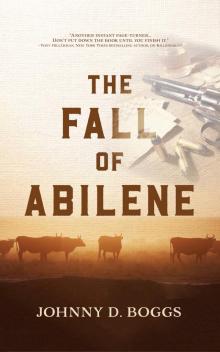 The Fall of Abilene
The Fall of Abilene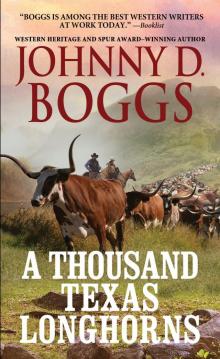 A Thousand Texas Longhorns
A Thousand Texas Longhorns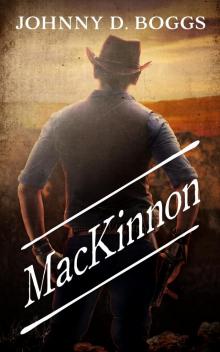 MacKinnon
MacKinnon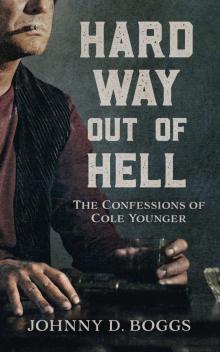 Hard Way Out of Hell
Hard Way Out of Hell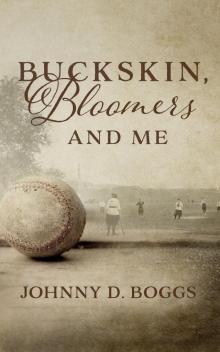 Buckskin, Bloomers, and Me
Buckskin, Bloomers, and Me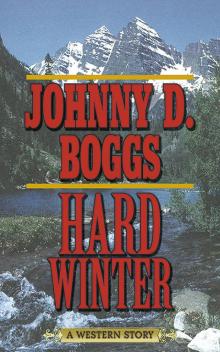 Hard Winter
Hard Winter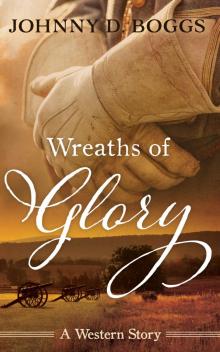 Wreaths of Glory
Wreaths of Glory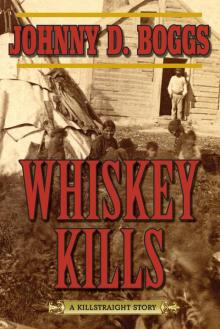 Whiskey Kills
Whiskey Kills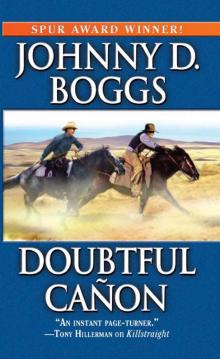 Doubtful Canon
Doubtful Canon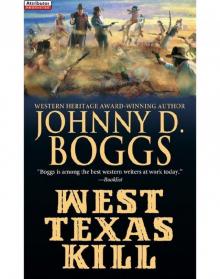 West Texas Kill
West Texas Kill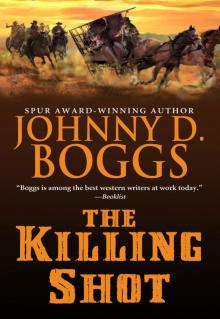 The Killing Shot
The Killing Shot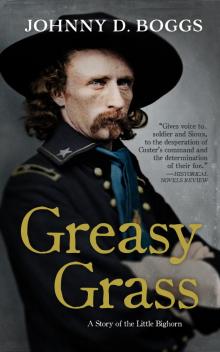 Greasy Grass
Greasy Grass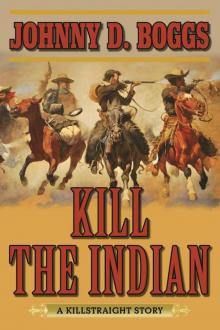 Kill the Indian
Kill the Indian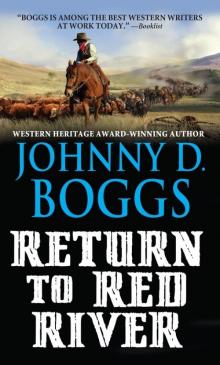 Return to Red River
Return to Red River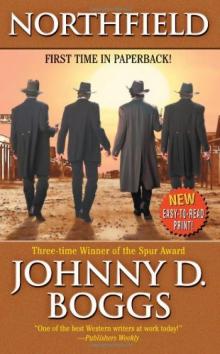 Northfield
Northfield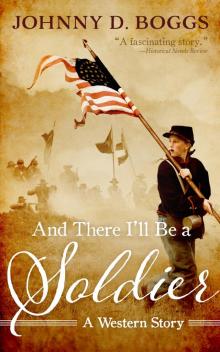 And There I’ll Be a Soldier
And There I’ll Be a Soldier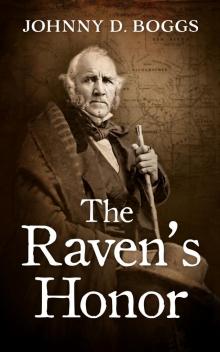 The Raven's Honor
The Raven's Honor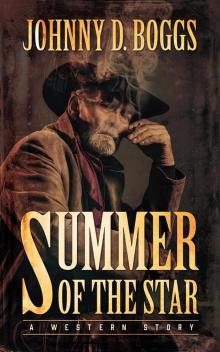 Summer of the Star
Summer of the Star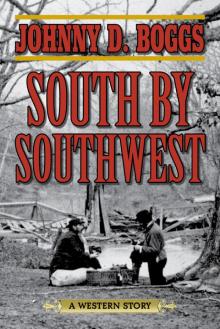 South by Southwest
South by Southwest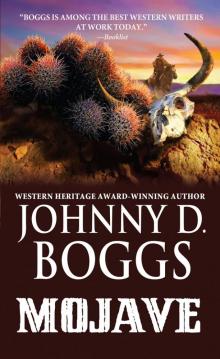 Mojave
Mojave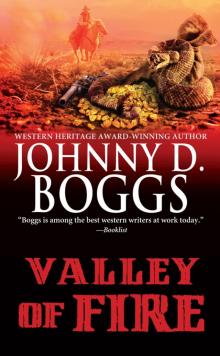 Valley of Fire
Valley of Fire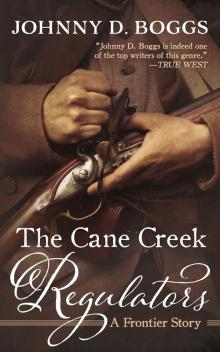 The Cane Creek Regulators
The Cane Creek Regulators